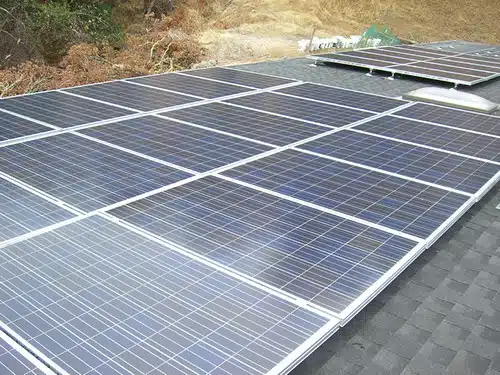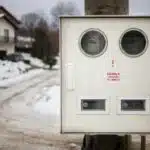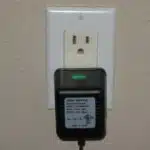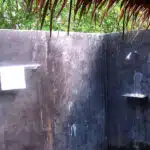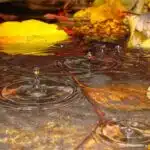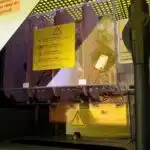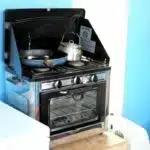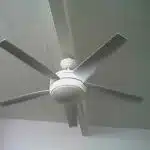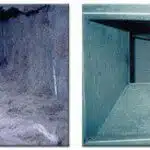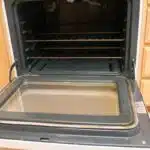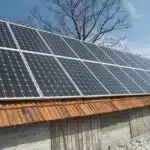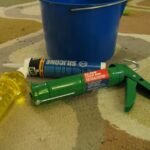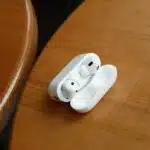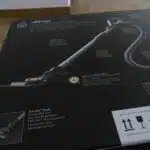As a solar panel cleaning specialist, I have witnessed firsthand the impact of dirty solar panels on energy production. Solar panels are a significant investment for any homeowner or business owner looking to save money on energy bills and reduce their carbon footprint. However, without proper maintenance, the efficiency of solar panels can decrease significantly.
Cleaning solar panels is an essential aspect of maintaining their efficiency and ensuring maximum power output. Over time, dust, dirt, bird droppings, and other debris can accumulate on solar panels and create a barrier that reduces their ability to absorb sunlight effectively. In this article, we will explore how to clean solar panels efficiently and safely to maintain optimal performance and save money in the long run.
The Importance Of Cleaning Solar Panels
There is a common theory that rainwater can clean solar panels, but this is not entirely true. While rainwater may remove some dust and debris, it is not enough to maintain the efficiency of solar panels. The accumulation of dirt on solar panels can significantly affect their performance, leading to a decrease in energy output and reduced lifespan.
One of the benefits of dirt on solar panels is that it can act as a natural cooling mechanism. However, too much accumulation can block sunlight from reaching the cells, reducing their effectiveness. Additionally, factors such as bird droppings, pollen, and smog can also diminish their efficiency.
As a solar panel cleaning specialist, it is important to understand the impact that dirty panels have on energy production. Regular cleaning is necessary to ensure optimal performance and extend the life of your system. By removing dirt and other contaminants from your panels, you can increase your system’s efficiency and maximize energy output for years to come.
To fully comprehend how to maintain your solar panel system effectively, it is crucial to understand the various factors affecting its performance. Understanding solar panel maintenance involves regular cleaning and inspection to identify any issues before they become major problems.
Understanding Solar Panel Maintenance
Maintaining solar panels is crucial to ensure the system’s optimal performance. Regular cleaning can help maintain its efficiency and prolong its lifespan. But how do you clean your solar panels? There are several DIY cleaning methods that homeowners can perform without having to spend a lot of money.
One cost-effective alternative is using a soft-bristle brush or a squeegee with a long handle and water to remove dirt, grime, and other debris that accumulate on the surface of the panels. It is important to avoid using abrasive materials or harsh chemicals that might scratch or damage the panel’s surface. Remember to rinse the panels thoroughly with water after cleaning them.
Another option is utilizing a commercially available solar panel cleaning solution. These solutions are designed specifically for use on solar panels, and they contain no harsh chemicals that could damage the panel’s surface. Always follow the manufacturer’s instructions when using these products, as some require dilution before application.
As a responsible homeowner, it is essential to understand how to maintain your solar panels properly. Regular maintenance can help prevent potential issues and keep your system operating at peak efficiency. In the next section, we will discuss safety precautions you should take before performing any cleaning activities on your solar panels to ensure both your safety and the longevity of your equipment.
Safety Precautions Before Cleaning
Imagine you are about to embark on a journey to clean your solar panels. Just as a sailor checks his boat before setting sail, you too must conduct a pre-cleaning inspection of your panels. This inspection will help you identify any damage or debris that may hinder the cleaning process. It is crucial to ensure that your panels are in good condition before cleaning them.
After conducting the inspection, it is essential to wear protective gear before starting the cleaning process. The sun’s rays can be harmful to your skin, and cleaning agents can irritate your eyes and skin. Protective gear such as gloves, goggles, and long-sleeved shirts can protect you from these risks. Wearing protective gear will not only keep you safe but also ensure that the cleaning process is comfortable.
In summary, a pre-cleaning inspection and wearing protective gear are two critical safety precautions to take before embarking on cleaning your solar panels. These precautions will protect both you and your solar panels throughout the cleaning process. Now that we have discussed safety precautions let us explore how to choose the right cleaning solution for your solar panels.
Choosing The Right Cleaning Solution
When it comes to choosing a cleaning solution for your solar panels, there are several options available in the market. It is important to choose the right one that will not damage your panels or leave any residue. Some of the common cleaning solution options include soap and water, vinegar and water, and specialized solar panel cleaning solutions.
If you prefer to use an eco-friendly approach to clean your solar panels, then you can opt for vinegar and water as this mixture is non-toxic and readily available in most households. Another option is to use a specialized solar panel cleaning solution that is specifically designed for solar panels. These solutions are formulated with ingredients that do not harm the panels or reduce their efficiency.
Here are some factors to consider when choosing a cleaning solution:
- The type of dirt or debris on your solar panels
- The type of surface of your solar panels
- The strength of the cleaning solution
- Whether it is eco-friendly or not
As a solar panel cleaning specialist, I recommend using an eco-friendly cleaning solution whenever possible. Not only will this be better for the environment, but it will also prevent any damage to your solar panels. Choosing the right cleaning solution is crucial in maintaining the efficiency and longevity of your solar system. In the next section, we will discuss the tools you’ll need for cleaning your solar panels effectively.
Tools You’ll Need For Cleaning
After choosing the right cleaning solution, it’s time to gather the tools required for cleaning your solar panels. A gentle approach is necessary when cleaning solar panels since they are made of tempered glass and can be damaged easily. Using abrasive materials or hard-bristled brushes can cause scratches on the glass surface, which can reduce efficiency over time. Therefore, you need to use soft-bristled brushes that won’t scratch the surface of the solar panel.
When selecting a brush for cleaning your solar panels, look for soft-bristled options that are designed specifically for this purpose. The bristles should be long enough to reach all corners of the panel but not so long that they bend and create uneven pressure points. Soft-bristled brushes come in many shapes and sizes, including handheld options and those mounted on long poles. Depending on your preference, you can choose a brush with an adjustable head angle to make it easier to clean hard-to-reach areas.
In addition to selecting the right type of brush, it’s important to know when to clean your solar panels. Ideally, you should clean them at least twice a year or whenever you notice a significant reduction in power output. However, if you live in an area where there is more dust or pollution in the air, or if there has been heavy rainfall or snowfall recently that has left debris on your solar panel, then you may need to clean them more frequently. By following these guidelines and using gentle cleaning tools like soft-bristled brushes, you will help maintain your solar panels’ efficiency while ensuring they remain in good condition for years to come.
When To Clean Your Solar Panels
Best practices for solar panel maintenance include regular cleaning to ensure maximum energy efficiency. To determine when your panels need to be cleaned, it is important to look for signs of dirt buildup. These signs can include reduced output or a noticeable decrease in performance.
If you live in an area with frequent dust storms or heavy rainfall, your panels may require more frequent cleaning. Additionally, if you notice bird droppings or other debris on your panels, it is best to clean them as soon as possible to prevent any damage.
Regular cleaning not only helps maintain the efficiency of your solar panels but also prolongs their lifespan. By following these best practices and paying attention to signs of dirt buildup, you can ensure that your solar panels are working at their maximum potential and providing you with the most savings on your energy bill.
Looking for ways to maximize the benefits of your solar panel system? In the next section, we will discuss how often you should clean your solar panels to ensure optimal performance and longevity.
How Often To Clean Your Solar Panels
- In general, it is recommended that solar panels be cleaned at least twice a year to ensure they remain efficient and effective.
- Cleaning solar panels involves using a soft brush, water, and soap to remove dirt and dust.
- It is important to avoid using abrasive cleaning products on the panels, as this can cause damage to the surface.
- It is also important to be aware of safety precautions when cleaning solar panels, such as ensuring the panels are turned off and that there is no risk of electric shock.
- Additionally, it is important to wear protective clothing and safety equipment when cleaning solar panels, such as gloves and goggles.
- Finally, it is important to make sure that the panels are completely dry before being re-energized or connected to the grid.
Frequency Of Cleaning
For efficient solar panel operation and optimum output, it is crucial to maintain their cleanliness. Routine cleaning ensures that the panels remain free of dirt, dust, and other environmental debris that can reduce their efficiency. The frequency of cleaning depends on various factors such as the location of the panels, weather conditions, and the amount of dirt in the area. A solar panel cleaning specialist recommends that panels should be cleaned at least twice a year to keep them functioning optimally.
The use of appropriate cleaning equipment is essential for maintaining the longevity of solar panels. Using abrasive materials or harsh chemicals during cleaning can cause scratches on the surface of the panels, reducing their effectiveness over time. Thus, it is imperative to use non-abrasive and gentle cleaning equipment when performing routine maintenance. Soft bristle brushes or microfiber cloths are ideal for this purpose.
Efficiency is one of the key factors when it comes to maintaining clean solar panels. Dirty panels can reduce energy production by up to 25%, leading to a loss in revenue for homeowners with solar systems installed on their homes or businesses. Frequent cleaning not only helps maximize energy production but also extends the lifespan of your solar system. Therefore, regular cleaning using appropriate tools and techniques is critical in ensuring your solar system operates efficiently throughout its lifetime.
Necessary Steps
As a solar panel cleaning specialist, I have come across various issues that arise due to improper cleaning. While it is essential to clean solar panels regularly, it is equally important to follow the necessary steps for optimum results. Best practices include using appropriate tools and techniques that are gentle on the surface of the panels. Common mistakes made during cleaning include using abrasive materials or harsh chemicals that can damage the surface of the panels over time.
The first step in maintaining clean solar panels is to ensure that they are free from any debris such as leaves or twigs. This can be done by using a soft bristle brush or a leaf blower. Once all debris has been removed, it’s time to start cleaning the panels with water and a non-abrasive cleaner such as dish soap. Avoid using chemical cleaners as they can leave residue on the surface of the panels, reducing their efficiency.
It is also essential to rinse off any soap residue thoroughly and avoid allowing water droplets to dry on the surface of the panels. Leaving water droplets on solar panels can cause hard water stains and reduce their effectiveness over time. Following these necessary steps will help ensure that your solar system operates efficiently throughout its lifetime while maximizing energy production and extending its lifespan.
Safety Precautions
As a solar panel cleaning specialist, it is crucial to emphasize the importance of safety precautions when cleaning solar panels. Cleaning solar panels can be dangerous, especially if they are located on rooftops or in high places. Therefore, it is essential to take all necessary safety measures to prevent accidents from occurring.
To ensure the safety of the cleaning process, one must wear appropriate safety equipment such as gloves, eye protection gear, and sturdy footwear with good grip. Additionally, using a ladder that is secure and stable will help prevent falls while cleaning the panels. It is also essential to avoid working on the panels during adverse weather conditions such as strong winds or heavy rain.
Lastly, it is vital to note that improper handling or maintenance of solar panels can result in severe damage or injury. Hence, it’s advisable to seek professional help from experienced individuals who have undergone training in handling solar panels safely. Following these safety precautions will not only protect you from harm but also ensure that your solar system operates efficiently for many years to come.
Step-By-Step Guide To Cleaning Solar Panels
As the old adage goes, “prevention is better than cure.” The same principle applies to solar panel maintenance. Regular cleaning and upkeep of your solar panels can ensure they function optimally and have a longer lifespan. Cleaning your solar panels may seem like an easy task, but it requires specific techniques and equipment to avoid damaging the panels.
Here is a step-by-step guide to cleaning your solar panels:
- Turn off the system: Before you start cleaning, turn off your solar panel system to prevent any electrical accidents.
- Inspect the panels: Check for any cracks, damage or debris on the surface of your solar panels. If there is debris such as leaves or branches, remove them gently using a soft-bristled brush or hose.
- Clean with soap water: Once you have removed any debris from the surface of the panel, mix some mild soap with water in a bucket. Use a soft sponge or cloth to clean the surface of each panel gently.
DIY vs Professional: While it may be tempting to save money by cleaning your own solar panels, it’s essential to consider the long-term costs. DIY cleaning methods may cause damage that can lead to costly repairs in the future. A professional solar panel cleaner has specialized tools and techniques that ensure thorough cleaning while avoiding damage.
Cost Comparison: The cost of professional solar panel cleaning depends on factors such as location, size of the system and accessibility. DIY methods are cheaper but can lead to expensive damage if not done correctly.
In conclusion, regular cleaning of your solar panels is crucial for optimal performance and longevity. Hiring a professional cleaner may be more expensive initially but can save you money in repairs down the line. It’s essential to weigh the costs and benefits when considering whether to clean your solar panels yourself or hire a professional.
Next up – Cleaning Panels on Ground vs Roof
Cleaning Panels On The Ground Vs. On The Roof
Cleaning solar panels on the ground can be a safer option than on the roof due to the potential hazards of working at heights and the associated safety risks. However, the cost of cleaning solar panels on the ground is typically higher due to the additional labor and equipment required. Accessibility is another factor to consider when deciding between cleaning panels on the ground or on the roof, as the latter may be hindered by the roof’s height or slope. Cleaning solar panels on the roof, however, can be completed with minimal ground-level setup and minimal equipment. Therefore, when deciding between cleaning solar panels on the ground or on the roof, it is important to weigh the safety, cost, and accessibility of both methods.
Cleaning Safety
Understanding cleaning techniques is vital when it comes to cleaning solar panels. One of the crucial decisions to make is whether to clean the panels on the ground or on the roof. While both methods have their advantages, cleaning panels on the roof can be particularly risky. Hence, safety precautions during cleaning are paramount.
When it comes to cleaning panels on the roof, there are numerous safety precautions that must be observed. Before commencing any cleaning activity, it’s essential to ensure that all the necessary safety gear is available and in good condition. This includes a harness, non-slip shoes, gloves, and goggles. Additionally, one should exercise caution when accessing the roof and ensure that all ladders are secure before climbing up.
Cleaning panels on the ground is generally safer than cleaning them on the roof; however, this doesn’t mean that one should be complacent about safety measures. It’s still crucial to wear protective gear such as gloves and goggles when handling cleaning agents or water under pressure. Furthermore, one should avoid using metallic objects such as blades or scrapers as they may cause damage to the panels’ surface and create opportunities for debris accumulation which will further reduce efficiency.
In conclusion, ensuring safety during solar panel cleaning is critical regardless of whether one chooses to clean them on the ground or on the roof. As a specialist in solar panel cleaning techniques, I advise everyone involved in this process to prioritize personal safety by observing all necessary precautions at every stage of a panel-cleaning operation. By doing so, we can keep our clients satisfied and guarantee optimal performance from their solar systems over an extended period.
Cost
Another factor to consider when deciding between cleaning solar panels on the ground versus on the roof is the cost. A cost analysis should be performed to determine which method is more financially feasible. Cleaning panels on the roof may require additional equipment or personnel, resulting in higher costs. On the other hand, cleaning panels on the ground may require more frequent cleaning due to increased exposure to dust and debris, leading to higher long-term costs.
To minimize costs when cleaning panels, budgeting tips can be applied. For instance, using non-abrasive cleaning agents and soft brushes can reduce the risk of damaging the panel surface and prolong its lifespan. Additionally, scheduling regular maintenance checks and cleanings can prevent major issues that might arise from neglecting minor ones. This can save time and money in the long run.
In conclusion, a thorough cost analysis and budget planning are essential when deciding whether to clean solar panels on the ground or on the roof. All factors, including equipment needed and frequency of cleaning, must be considered before making a final decision. By following budgeting tips and investing in proper maintenance, clients can save money while ensuring optimal performance from their solar systems over an extended period.
Access
Access is another crucial factor that must be considered when deciding between cleaning solar panels on the ground or on the roof. Cleaning equipment and tools must be easily accessible to ensure efficient cleaning. On a rooftop, safety concerns must also be taken into account when accessing the panels. If proper safety protocols are not followed, accidents may occur, leading to injuries or damage to the solar system.
To minimize safety risks while cleaning solar panels on rooftops, proper safety measures must be put in place. This includes using equipment such as harnesses and ropes to secure personnel while working at heights. Additionally, regular training should be provided to employees who will be working on rooftops to ensure they are knowledgeable about safe working practices.
In summary, access is an important factor that impacts the efficiency and safety of cleaning solar panels. Proper planning and preparation can ensure easy accessibility of cleaning equipment while adhering to safety protocols when working on rooftops. By prioritizing access and safety considerations during panel cleaning, clients can maintain optimal performance from their solar systems for an extended period while avoiding potential hazards.
Tips For Cleaning Solar Panels On A Slope
When cleaning solar panels on a slope, it’s important to consider the cleaning angles and avoid causing damage to the panels. The first thing to keep in mind is that you should never use abrasive materials or harsh chemicals when cleaning solar panels. Instead, use soft brushes or sponges and mild detergents to gently remove dirt and grime.
Cleaning angles are also an important consideration when cleaning solar panels on a slope. In general, it’s best to clean the panels from below so that you can see what you’re doing and avoid accidentally damaging the panels. If you must clean the panels from above, be sure to use caution and take extra care not to put too much pressure on them.
Finally, always be sure to avoid causing damage when cleaning solar panels on a slope. This means being careful not to scratch or chip the surface of the panels, as even small scratches can reduce their overall efficiency. By following these tips for cleaning solar panels on a slope, you can help ensure that your system continues to generate electricity efficiently for years to come. In the next section, we’ll discuss how to clean solar panels in extreme weather conditions.
Cleaning Solar Panels In Extreme Weather Conditions
Having discussed cleaning solar panels on a slope, it is essential to address the issue of cleaning solar panels during extreme weather conditions. Monsoon season and winter storms pose unique challenges that require careful consideration when cleaning solar panels.
Cleaning solar panels during monsoon season can be challenging due to the heavy rainfall, high humidity, and strong winds. It is crucial to ensure that the solar panels are free from any debris or dirt before the onset of monsoon season. During this season, there is an increased risk of water damage to the electrical components of the solar panel if not cleaned correctly. Therefore, it is advisable to hire a professional cleaner who has experience in dealing with such conditions.
Winter storms are another extreme weather condition that requires special attention when cleaning solar panels. In areas with heavy snowfall, it is easy for snow and ice to accumulate on the surface of the panel, reducing its efficiency. However, removing snow or ice from a solar panel can be tricky as using sharp objects may result in scratches or cracks on the surface of the panel. Thus, it is best to wait for natural melting or seek help from a professional cleaner.
In summary, cleaning solar panels during extreme weather conditions requires careful consideration due to potential risks involved in doing so. Whether dealing with monsoon season or winter storms, it is advisable to hire a specialist cleaner experienced in handling these specific situations. In the next section, we will discuss what not to do when cleaning your solar panels.
What Not To Do When Cleaning Solar Panels
As a solar panel cleaning specialist, I have seen some horrifying sights. It’s not uncommon to see homeowners attempting to clean their solar panels with everything from harsh chemicals to pressure washers. This can do more harm than good and lead to costly repairs or replacement. In this section, I will share some common cleaning mistakes to avoid and provide damage prevention tips.
First off, do not use abrasive materials or chemicals on your solar panels. This includes steel wool, scrub brushes, or any cleaners that contain ammonia or bleach. These products can scratch the surface of the panel and strip away the protective coating that helps it function efficiently. Instead, opt for a soft-bristled brush and gentle soap mixed with water.
Secondly, avoid using high-pressure water sprays on your panels as it can cause cracks or breakage on the glass surface. The force of the water may also dislodge wiring connections or damage other components of your solar panel system. If you need to remove stubborn dirt buildup, try using a hose with a low-pressure nozzle attachment.
Lastly, never attempt to clean your solar panels when they are hot or in direct sunlight as this could cause thermal shock and irreversible damage. Wait until early morning or late evening when the panels are cool enough to touch before beginning cleaning. Remembering these simple tips will help ensure that your solar panels remain efficient and functional for years to come.
Now that we’ve covered what not to do when cleaning your solar panels let’s move on to discussing common mistakes that many people make in their efforts to keep their solar systems operating at peak performance levels while avoiding damaging them in any way possible.
Common Mistakes To Avoid When Cleaning
When it comes to solar panel cleaning, there are common mistakes that many people make. These mistakes can not only damage your solar panels but also reduce their efficiency and lifespan. To avoid these mistakes and ensure efficient and effective cleaning of your solar panels, here are some tips to keep in mind.
Firstly, using harsh chemicals or abrasive materials for cleaning should be avoided at all costs. These can damage the surface of the solar panels and even cause scratches that can affect their ability to absorb sunlight. Instead, use mild soap and water or a vinegar solution for cleaning. Moreover, avoid using high-pressure water jets as they may also damage the panels.
Secondly, another mistake is excessive use of water during cleaning. It is important to remember that excessive water usage does not necessarily mean better cleaning; in fact, it may lead to accumulation of dirt and debris on the panels after drying. Therefore, use just enough water for cleaning without overdoing it.
Lastly, failing to clean your solar panels regularly is another mistake that many people make. Regular maintenance is crucial in keeping your solar panels functioning at optimum levels. A schedule should be established for routine maintenance such as monthly or quarterly inspections depending on your location’s climate conditions.
To sum up, by avoiding these common mistakes in solar panel cleaning you will ensure that your solar panels remain efficient and have a longer lifespan. Remember: no harsh chemicals or abrasive materials should ever be used when cleaning; do not overuse water while washing them; and perform regular maintenance checks at least once every few months.
Tips for Efficient Solar Panel Cleaning:
Here are four tips for efficient solar panel cleaning:
- Clean your solar panels early in the morning or late afternoon when they are cool.
- Use soft-bristle brushes or sponges instead of abrasive scrubbers.
- Wear rubber-soled shoes while on the roof to prevent slipping accidents.
- Use a squeegee to dry the panels after cleaning to avoid water spots.
With these tips, you can be sure that your solar panels are cleaned efficiently and effectively.
Benefits Of Regular Solar Panel Cleaning
Regular solar panel cleaning is crucial for maintaining and maximizing the efficiency of your solar panels. There are numerous benefits to regularly cleaning your solar panels, including increased energy output, lower maintenance costs, and extended lifespan of the panels.
One of the primary benefits of solar panel cleaning is maximizing their efficiency. When dirt and debris accumulate on the surface of solar panels, they block sunlight from reaching the photovoltaic cells, reducing their ability to generate electricity. By removing this buildup through regular cleaning, you can ensure that your solar panels are operating at their full potential, allowing them to produce more energy.
Another benefit of regular solar panel cleaning is lower maintenance costs. When dirt and debris are left to accumulate on solar panels for long periods, they can cause damage that requires costly repairs or replacements. Regular cleaning helps prevent such damage by keeping the panels in good condition, ensuring they last longer and require less maintenance over time.
| Benefits | Emotional Response |
|---|---|
| Increased Energy Output | Excitement |
| Lower Maintenance Costs | Relief |
| Extended Lifespan of Panels | Satisfaction |
It is essential to hire professional solar panel cleaners who have the necessary expertise and equipment to clean your panels safely and effectively. Attempting to clean your solar panels yourself can be dangerous if you don’t have proper training or equipment. By hiring professionals, you can ensure that your panels are cleaned thoroughly without risking injury or damage to the system.
By regularly cleaning your solar panels with professional help, you can enjoy a range of benefits while also contributing positively towards environmental conservation efforts. The next section will delve into how hiring professional cleaners is beneficial in ensuring optimal cleanliness levels for your solar panels.
Hiring Professional Solar Panel Cleaners
According to recent research, dirty solar panels can reduce energy output by up to 25%. This means that a homeowner with a solar panel system could be losing hundreds of dollars in electricity savings each year due to lack of maintenance. This is where professional solar panel cleaners come into play.
Hiring professional solar panel cleaners can be a cost-effective solution for homeowners who want to maintain the efficiency and longevity of their solar panels. While some may view the cost of hiring professionals as an additional expense, it is important to consider the potential long-term savings that can be achieved by maintaining clean and functional solar panels. Additionally, reputable cleaners have access to specialized equipment and cleaning solutions that are essential for effective solar panel maintenance.
Finding reputable cleaners is crucial for ensuring that your investment in solar panels is protected. It is recommended to research different companies and read customer reviews before making a decision. A reliable and trustworthy cleaner should have experience in cleaning various types of solar panels, use eco-friendly cleaning products, and provide proof of insurance coverage. By investing time in finding the right cleaner, homeowners can rest assured that their solar panels are receiving high-quality maintenance services.
In conclusion, hiring professional solar panel cleaners can be an effective way to ensure the longevity and maximum efficiency of your solar energy system. The cost-effectiveness of hiring professionals should not be overlooked when considering the benefits that clean panels bring to your home’s energy output and savings over time. By researching reputable cleaners who have experience and use eco-friendly products, you can trust that your investment in renewable energy will continue to provide financial benefits for years to come.
Conclusion
The importance of cleaning solar panels cannot be stressed enough. Regular maintenance can significantly enhance the efficiency and lifespan of your solar panels. Understanding the proper cleaning techniques and tools is crucial to ensuring the optimal performance of your solar panels.
Before beginning the cleaning process, it’s essential to take all necessary safety precautions. Choose the right cleaning solution, and ensure that you have all the required tools for cleaning. Avoid common mistakes like using abrasive materials or harsh chemicals that can damage your solar panels.
Regular cleaning not only enhances the efficiency of your solar panels but also increases their longevity. By investing in professional solar panel cleaners, you can rest assured that your solar panels will be cleaned thoroughly and effectively, thereby maximizing their energy output. Remember, maintaining clean and efficient solar panels ensures a cleaner environment for generations to come.
Image Credits
- “Joe’s DIY Solar Panel Install Taken by Joe” by Dave Dugdale (featured)

